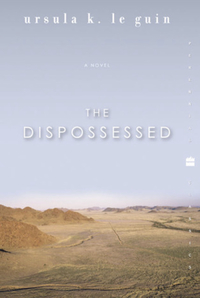Take a photo of a barcode or cover
adventurous
dark
mysterious
reflective
medium-paced
Plot or Character Driven:
A mix
Strong character development:
Complicated
Loveable characters:
Complicated
Diverse cast of characters:
Yes
Flaws of characters a main focus:
Yes
challenging
reflective
slow-paced
Plot or Character Driven:
Plot
Strong character development:
No
Loveable characters:
No
Diverse cast of characters:
No
Flaws of characters a main focus:
No
challenging
informative
inspiring
reflective
slow-paced
Plot or Character Driven:
Character
Strong character development:
Yes
Loveable characters:
Yes
Diverse cast of characters:
No
Flaws of characters a main focus:
No
adventurous
challenging
reflective
slow-paced
Plot or Character Driven:
Character
Strong character development:
Complicated
Loveable characters:
Yes
Diverse cast of characters:
No
Flaws of characters a main focus:
No
Ik ben helemaal geen sf-lezer dus ik was toch wel een beetje bang dat ik dit niks zou vinden, hoe interessant het thema ook is. Dat viel heel erg mee, al had ik soms wel moeite met het onthouden van alle namen en verbanden - de auteur neemt haar lezers niet heel erg bij de hand met stambomen of kaartjes die je in andere sf of fantasy wel tegenkomt. Ik geloof dat ik niet heel enthousiast ben over de structuur van het verhaal (wisseling van 2 tijdlijnen), dus daarom 4 sterren ipv 5. Dat gezegd hebbende: de anarchistische samenleving die in dit boek geschetst wordt is een mooi voorbeeld van een concrete uitwerking van een voor mij soms toch vrij abstracte politieke stroming/theorie. Daarnaast ook een mooi verhaal met interessante karakters. Must read voor iedereen die geïnteresseerd is in een andere samenlevingsvorm dan de onze.
challenging
dark
hopeful
inspiring
reflective
tense
slow-paced
Plot or Character Driven:
Character
Strong character development:
Yes
Loveable characters:
Yes
Diverse cast of characters:
N/A
Flaws of characters a main focus:
Complicated
adventurous
hopeful
inspiring
reflective
medium-paced
Plot or Character Driven:
A mix
Strong character development:
Yes
Loveable characters:
Yes
Diverse cast of characters:
Yes
Flaws of characters a main focus:
Yes
adventurous
challenging
emotional
hopeful
inspiring
reflective
medium-paced
Plot or Character Driven:
A mix
Strong character development:
Yes
Loveable characters:
Complicated
Diverse cast of characters:
Complicated
Flaws of characters a main focus:
Yes
I am speechless. This is so beautiful; I almost want to read it again. It breaks my heart that I cannot live an Anarresti life of freedom and choice.
reflective
slow-paced
Plot or Character Driven:
Character
Strong character development:
Complicated
Loveable characters:
No
Diverse cast of characters:
Yes
Flaws of characters a main focus:
No
The Dispossessed is a novel by Ursual K. Le Guin which takes place on the planets of Urras -- a capitalistic planet, though it does apparently have some social democratic states -- and Anarres -- an anachro-communist planet. It follows the character of Shevek, a Anarrest theoretical physicist, alternating chapters between his present life as a visitor to Urras, and his past life trying to work out his feelings of justice and morality on Anarres.
I'm not a fan of reading heavily didactic work, and this is not really an exception. I do often enjoy reading slow paced novels, but this one is extremely dry. The structure of the novel -- odd numbered chapters take place in the present Urras and even numbered chapters on the past Anarres -- prevents any ability for tension to grow; just when the narrative seems to be gathering steam, it is completely derailed by swapping to a different continuality (one time quite literally; as the rising tension and action of chapter nine nearly comes to a head, we're thrown onto a random train ride at the beginning of chapter 10).
The characters are bland and flat, and at one point the main character sexually assaults another character for no understandable reason, plot wise, and it is never brought up again. The insistence on swapping timelines every chapter, even if it would make more sense on a narrative level to sometimes have two chapters in a row from one timeline, means the pacing is all over the place. This book is both extremely didactic and extremely dry. The prose.... is not especially good.
"But Ronnie?" you might ask. "Why did you continue reading it even when the rest of your book club decided it was our second DNF in nearly five years and 51 novels?"
Honestly, I was kind of interested in what was being... uh... didacted, mostly. It's the same reason I sloughed through Voltaire's <i>Candide</i> even though that was hardly a pleasurable reading experience. This book has some interesting things to say about propaganda and the use thereof, of implicit obeyance, of societal expectations and pressures, especially unwritten ones, and raises questions about isolationist tendencies.
This was my first Le Guin novel, but it definitely won't be my last (someday I will read the Earthsea novels). I just hope the rest of them are.... better.
I'm not a fan of reading heavily didactic work, and this is not really an exception. I do often enjoy reading slow paced novels, but this one is extremely dry. The structure of the novel -- odd numbered chapters take place in the present Urras and even numbered chapters on the past Anarres -- prevents any ability for tension to grow; just when the narrative seems to be gathering steam, it is completely derailed by swapping to a different continuality (one time quite literally; as the rising tension and action of chapter nine nearly comes to a head, we're thrown onto a random train ride at the beginning of chapter 10).
The characters are bland and flat, and at one point the main character sexually assaults another character for no understandable reason, plot wise, and it is never brought up again. The insistence on swapping timelines every chapter, even if it would make more sense on a narrative level to sometimes have two chapters in a row from one timeline, means the pacing is all over the place. This book is both extremely didactic and extremely dry. The prose.... is not especially good.
"But Ronnie?" you might ask. "Why did you continue reading it even when the rest of your book club decided it was our second DNF in nearly five years and 51 novels?"
Honestly, I was kind of interested in what was being... uh... didacted, mostly. It's the same reason I sloughed through Voltaire's <i>Candide</i> even though that was hardly a pleasurable reading experience. This book has some interesting things to say about propaganda and the use thereof, of implicit obeyance, of societal expectations and pressures, especially unwritten ones, and raises questions about isolationist tendencies.
This was my first Le Guin novel, but it definitely won't be my last (someday I will read the Earthsea novels). I just hope the rest of them are.... better.
adventurous
challenging
hopeful
reflective
medium-paced
Plot or Character Driven:
A mix
Strong character development:
Yes
Loveable characters:
Yes
Diverse cast of characters:
Yes
Flaws of characters a main focus:
Yes




